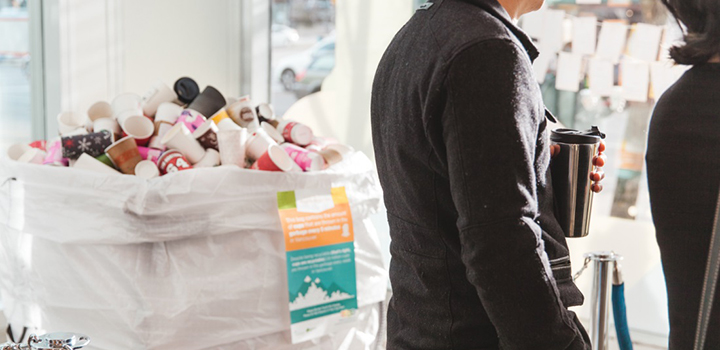
- Sustainable Planet -
- 3mins -
- 77 views
Vancouver bans main single-use litter items
Vancouver city council has voted to phase in a ban on plastic shopping bags, straws, styrofoam containers and other single-use items.
“Reducing waste from single-use items is important to residents,” says Vancouver’s mayor
Vancouver is bringing in bans on the use of plastic bags, straws and other single-use items, while introducing what the city believes to be a first-of-its-kind fee for disposable cups in the country. — reported The Canadian Press
Mayor Kennedy Stewart says bylaws passed by city council balance public demand for action on disposable items with the needs of those with disabilities and the business community. "We have heard loud and clear that reducing waste from single-use items is important to residents and that bold action is needed," Stewart said on Thursday in a news release.

Vancouver “breaking new ground with the fees on disposable cups”
Under the new rules, plastic and compostable plastic straws will be banned on 22 April 2020, but food vendors must provide bendable straws upon request to meet an accessibility requirement.
A one-year extension has been granted to allow plastic straws served with bubble tea, allowing more time for the market to provide alternatives. Single-use utensils can only be given out when requested.
Beginning 1 January, 2021, plastic and compostable plastic shopping bags will also be prohibited. Retailers can still provide paper bags, but they must contain at least 40% recycled content. Shoppers will be charged a fee of 15 cents for each paper bag in the first year, then 25 cents a bag after that. The fees for buying reusable bags will be $1 in 2021 and $2 beginning the next year. Disposable cups will also come with a 25-cent fee.
"The bylaws are crucial in reducing waste and litter," said Monica Kosmak, the city’s senior project manager on the plan.
Each week in Vancouver, 2.5 million paper cups and two million plastic shopping bags are thrown out. Over the course of a year, 25 million to 30 million plastic straws also end up in landfills.
Estimating exactly how much waste will be diverted is difficult, however. The city expects the effects of the bans to be significant and Kosmak said studies have shown fees on paper bags reduce their use by 80 to 90%. Kosmak said Berkeley, California, has a disposable cup fee but she believes Vancouver is the first city in Canada to introduce one.
"We are breaking new ground with the fees on disposable cups so we’ll be monitoring that to see how effective it is," she said. Each business will keep the mandatory fees it collects.
The new rules join a previously approved bylaw that takes effect on Jan. 1 that prohibits foam cups and takeout containers.
The city has posted toolkits to help businesses and charities prepare for the bans.
But the rules irk some members of the business community. Greg Wilson, director of B.C. government relations with the Retail Council of Canada, said they are cumbersome and complex.
The burden on small businesses is disproportionate, he said, giving the example of a bike repair company that typically gives out fewer than 100 plastic bags a year. Switching to paper bags means they have to reprogram their point-of-sale register to display a separate line for the bag fee, then reprogram it again next year when the fee goes up. They are also required to report the number of single-use items they distribute to customers.
"For a big business, those reprogramming costs, those reporting costs, they’re not overly significant. But for a small independent business, those are very significant," he said.
Vancouver’s plastic bag rules are also different than neighbouring jurisdictions, which is confusing for consumers and also businesses with stores in multiple municipalities, Wilson said.
"You have something that is very complex and not harmonized with surrounding jurisdictions," he said.
Kosmak said Vancouver’s plastic bag bylaws closely resemble 12 of the 14 B.C. municipalities that have developed or are developing similar rules.
Check out Vancouver city council news release, or more information on the Single-Use Item Reduction Strategy
Source: Amy Smart for The Canadian Press, details first published 28 November, 2019
THE EU PLASTIC BAG LEVY SEEMS TO BE WORKING!
STUDY FINDS 30% DROP IN PLASTIC BAGS LITTERING EUROPEAN SEABED: A recent scientific study claims that the number of plastic bags on the ocean floor around parts of Europe is dropping, which could be proof that the plastic bag levy is having an effect. There are fewer plastic bags on the seafloor since the introduction of a carrier bag charge in many EU countries, according to the study. Learn more.

